8M2 Global Studies
Section outline
-
Welcome to our MHJC Online 8M2 Global Studies 2021 course page. Please do not hesitate to contact me at mmartin@mhjc.school.nz if you have any questions about your classwork or homework. I look forward to working with you all in 2021. Ms Martin
-

In Global Studies we will be exploring the survival skills of Maori when they arrived in NZ and the impact of the contact between the ancestors of New Zealand with the arrival of the first Europeans and how two opposite cultures survived.
Achievement Objectives:
Level 4:
Understand how formal and informal groups make decisions that impact on communities.
Understand how people participate individually and collectively in response to community challenges.We are EXPLORING survival skills... by investigating how the first people arriving in NZ survived
We are EXPLORING the importance of the natural environment for Maori by describing how the environment helps Maori to survive.
We are EXPLORING Aotearoa's natural environment... by displaying what we know about the environment using maps
Success Criteria: I can/have...
Success Criteria:
Identify the main key aspects of the early life of Maori
Identified key aspects of Auckland on a map
Describe key ideas of the arrival of the first Europeans
Describe features of Auckland
Explain the importance of the environment on the survival of Maori
Compare other civilizations survival skills
Evaluate the consequences of this survival method in the environment
Reflect the changes in the environment that have occurred because of human migration and its effects
-
Hello, guys this week we are back to level three lockdown, please follow the activities in the Focus Friday sheet.
Achievement Objectives:
Level 4:
Understand how formal and informal groups make decisions that impact on communities.
Understand how people participate individually and collectively in response to community challenges.We are EXPLORING survival skills... by investigating how the first people arriving in NZ survived
We are EXPLORING the importance of the natural environment for Maori by describing how the environment helps Maori to survive.
We are EXPLORING Aotearoa's natural environment... by displaying what we know about the environment using maps
Success Criteria: I can/have...
Success Criteria:
Identify the main key aspects of the early life of Maori
Identified key aspects of Auckland on a map
Describe key ideas of the arrival of the first Europeans
Describe features of Auckland
Explain the importance of the environment on the survival of Maori
Compare other civilizations survival skills
Evaluate the consequences of this survival method in the environment
Reflect the changes in the environment that have occurred because of human migration and its effects
-
For this week we will be looking at the Polynesian culture and how this amazing culture were fantastic sailors that help them to survive in the world thanks to this skill.
Achievement Objectives:
Level 4:
Understand how formal and informal groups make decisions that impact communities.
Understand how people participate individually and collectively in response to community challenges.We are EXPLORING survival skills... by investigating how the first people arriving in NZ survived
We are EXPLORING the importance of the natural environment for Maori by describing how the environment helps Maori to survive.
We are EXPLORING Aotearoa's natural environment... by displaying what we know about the environment using maps
Success Criteria: I can/have...
Success Criteria:
Identify the main key aspects of the early life of Maori
Identified key aspects of Auckland on a map
Describe key ideas of the arrival of the first Europeans
Describe features of Auckland
Explain the importance of the environment on the survival of Maori
Compare other civilizations survival skills
Evaluate the consequences of this survival method in the environment
Reflect the changes in the environment that have occurred because of human migration and its effects
Activities:
1. Documentary: https://www.youtube.com/watch?v=LxeCWyC-E6M (10 minutes)
2. Polinesian navigation techniques- Dictation picture
3. First Arrivals-Crossword
4. Pacific Exploration -Education PerfectEXPLORE / TŪHURA learning intentions:
- We are EXPLORING survival skills... by investigating how the first people arriving in NZ survived
- We are EXPLORING the importance of the natural environment for Maori by describing how the environment helps Maori to survive.
- We are EXPLORING Aotearoa's natural environment... by displaying what we know about the environment using maps
-
This week we will be doing learning from home. Find all your activities for the week in the Must do/Can do sheet.
Email me any questions you may have. I will see you all of you in our Google meet.
-
We are focussing Maori values and structures through the differences of the early contact between Maori and English
Success
Criteriaidentifying ways of how Maori survived when they arrived in New Zealand
analysing the differences between Europeans and Maori
classifying differences and similarities between early Maori and early European settlers
comparing different ways of survival
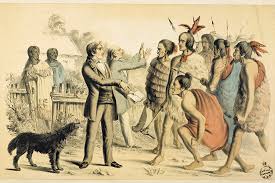
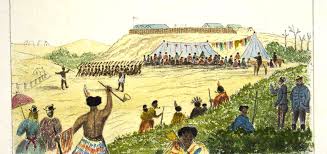 This week we have a set of activities to finish, all of them are in Google classroomActivities to finish:1. Matching Definitions2. Maori early settlements3. Where did the Maori ancestors come from?4. Traditional navigation techniquesNew Activities7 Pictures analysis-Maori survival techniques
This week we have a set of activities to finish, all of them are in Google classroomActivities to finish:1. Matching Definitions2. Maori early settlements3. Where did the Maori ancestors come from?4. Traditional navigation techniquesNew Activities7 Pictures analysis-Maori survival techniquesFOCUS / ARONGA learning intentions:
- We are FOCUSING on the significance of the first contact between the ancestors of New Zealand and the first Europeans
- We are FOCUSING Maori values and structures through the differences of the early contact between Maori and English
-
We are focussing Maori values and structures through the differences of the early contact between Maori and English
Success
Criteriaidentifying ways of how Maori survived when they arrived in New Zealand
analysing the differences between Europeans and Maori
classifying differences and similarities between early Maori and early European settlers
comparing different ways of survival

 This week we have a set of activities to finish, all of them are in Google classroomActivities to finish:1. Picture analysis2. British impact on the land
This week we have a set of activities to finish, all of them are in Google classroomActivities to finish:1. Picture analysis2. British impact on the landFOCUS / ARONGA learning intentions:
- We are FOCUSING on the significance of the first contact between the ancestors of New Zealand and the first Europeans
- We are FOCUSING Maori values and structures through the differences of the early contact between Maori and English
-
Introduction to the Assessment 1
See the instrucction
Section 1:
How did the 1st Polynesians Arrive?
How the 1st British Arrive?
Section 2:
What did the Polynesians do to survive?
What did the British do to survive?
Section 3:
How did each group impact on the land?
Section 4:
In what ways did the two groups cooperate or share similar ideas and survival strategies?
Section 5:
Venn Diagram
-
YEAR 8
Students show understanding of how early Polynesian and British migrations to New Zealand have continuing significance for Tangata Whenua and communities
Criteria
WORKING TOWARDS Curriculum expectation
Working AT curriculum expectation
Working ABOVE curriculum expectation
Working BEYOND curriculum expectation
Migration History
You have a limited understanding of Polynesian/British migration to New Zealand
You have some understanding of Polynesian/British migration to New Zealand
You have an understanding of Polynesian/British migration to New Zealand
You have a full understanding of Polynesian/British migration to New Zealand
Historical Significance
You have described the historical significance of Polynesian/British migration to Tanagata Whenua/Communities
You have described the historical significance of Polynesian/British migration to Tanagata Whenua/Communities, using examples to support
You have described in detail the historical significance of Polynesian/British migration to Tanagata Whenua/Communities, using examples to support
You have explained the historical significance of Polynesian/British migration to Tanagata Whenua/Communities, using examples to support
Impact of Migration
You have described the continuing impact of Polynesian/British migration on Tanagata Whenua & New Zealand
You have described the continuing impact of Polynesian/British migration on Tanagata Whenua & New Zealand, using examples to support
You have described in detail the continuing impact of Polynesian/British migration on Tanagata Whenua & New Zealand, using examples to support
You have explained the continuing impact of Polynesian/British migration on Tanagata Whenua & New Zealand, using examples to support
Time management
You have yet to complete and submit your assessment….
You have submitted your assessment late …..
You have submitted your assessment by the date …...
You have submitted your assessment by the date …….
Overall
WORKING TOWARDS Curriculum expectation
Working AT curriculum expectation
Working ABOVE curriculum expectation
Working BEYOND curriculum expectation
-
I can't believe is Week 10, due to Easter, this week we only have one class on, Thursday but we will be going to the Auckland museum.
Please watch the video below before Thursday.
https://www.youtube.com/watch?v=LraSPzWZtfI
FOCUS / ARONGA learning intentions:
- We are FOCUSING on the significance of the first contact between the ancestors of New Zealand and the first Europeans
- We are FOCUSING Maori values and structures through the differences of the early contact between Maori and English
-
LAST WEEK OF TERM 1!!!!
Well done to all of you!
Please upload your assessment here.
PLEASE DON'T FORGET TO UPLOAD THE PEER EVALUATION, SEE GOOGLE CLASSROOM
-
Achievements Objectives
Understand how formal and informal groups make decisions that impact communities.
Understand how people participate individually and collectively in response to community challenges.
Protecting Our Homeland:
Biosecurity in New Zealand



Learning
Understanding how and why New Zealand's Biodiversity is unique.
Understanding threats to this biodiversity and what measures taken minimize these threats
Success Criteria:
Identify in which ways New Zealand is under attack
Identify key terms
Develop an understanding of what makes New Zealand unique and that perhaps the idea of a ‘Clean Green’ environment is a misconception and may be under threat.
Name examples of threats to our natural environment (environmental sustainability)
Name examples of threats to our social/cultural environment (social sustainability)
Describe what biosecurity is and why it is an important issue for New Zealand
Understand what biosecurity is and why it is important to NZ’s economy, environment and health of living things
Explain how travelers can potentially affect biosecurity and the pressure they place on biosecurity systems.
Reflect how important is biodiversity in our everyday life
Evaluate what changes will happen in our daily life due to this threat and what alternatives we have.
ActivitiesLesson 1: An Introduction Biosecurity
Students need to begin a new unit in their Red Books by opening two 2 blank pages. At the top of the page, draw a horizontal line about a third of the way down the page. Above the line write the unit title: “Biosecurity in New Zealand” in Large Letters.
Task 1: Under the line write down (in your Red books) the following observation about Biosecurity:
Task 2: Vocabulary words
Lesson 2: Biosecurity Poster.
Watch the 2 short video clips on Biosecurity in New Zealand.
List several key points in your Reb Books, then create a mini-poster in a page in your Red Books, highlighting the importance of Biosecurity in protecting New Zealand from an array of threats.
EXPLORE / TŪHURA learning intentions:
- We are EXPLORING how and why New Zealand's Biodiversity is unique to connect with the importance of keeping New Zealand safe
- We are EXPLORING threats to this biodiversity and to investigate what measures are taken to minimize these threats
- We are EXPLORING...
-
Achievements Objectives
Understand how formal and informal groups make decisions that impact communities.
Understand how people participate individually and collectively in response to community challenges.
Protecting Our Homeland:
Biosecurity in New Zealand



Learning
Understanding how and why New Zealand's Biodiversity is unique.
Understanding threats to this biodiversity and what measures taken minimize these threats
Success Criteria:
Identify in which ways New Zealand is under attack
Identify key terms
Develop an understanding of what makes New Zealand unique and that perhaps the idea of a ‘Clean Green’ environment is a misconception and may be under threat.
Name examples of threats to our natural environment (environmental sustainability)
Name examples of threats to our social/cultural environment (social sustainability)
Describe what biosecurity is and why it is an important issue for New Zealand
Understand what biosecurity is and why it is important to NZ’s economy, environment and health of living things
Explain how travelers can potentially affect biosecurity and the pressure they place on biosecurity systems.
Reflect how important is biodiversity in our everyday life
Evaluate what changes will happen in our daily life due to this threat and what alternatives we have.
ActivitiesLesson 2: Biosecurity Poster.
Watch the 2 short video clips on Biosecurity in New Zealand.
List several key points in your Reb Books, then create a mini-poster in a page in your Red Books, highlighting the importance of Biosecurity in protecting New Zealand from an array of threats.
Activity 3
Reading-Google classroom.EXPLORE / TŪHURA learning intentions:
- We are EXPLORING how and why New Zealand's Biodiversity is unique to connect with the importance of keeping New Zealand safe
- We are EXPLORING threats to this biodiversity and to investigate what measures are taken to minimize these threats.
-
Because Week 2 was a short week and we had limited class time, we are going to use Lesson 1 to catch up on all of our work, including the last lesson.Learning
Understanding how and why New Zealand's Biodiversity is unique.
Understanding threats to this biodiversity and what measures taken minimize these threats
Success Criteria:
Identify in which ways New Zealand is under attack
Identify key terms
Develop an understanding of what makes New Zealand unique and that perhaps the idea of a ‘Clean Green’ environment is a misconception and may be under threat.
Name examples of threats to our natural environment (environmental sustainability)
Name examples of threats to our social/cultural environment (social sustainability)
Describe what biosecurity is and why it is an important issue for New Zealand
Understand what biosecurity is and why it is important to NZ’s economy, environment and health of living things
Explain how travelers can potentially affect biosecurity and the pressure they place on biosecurity systems.
Reflect how important is biodiversity in our everyday life
Evaluate what changes will happen in our daily life due to this threat and what alternatives we have.ACTIVITIES
1. Bug Threatens New Zealand
2. TV program on New Zealand Border Security.
EXPLORE / TŪHURA learning intentions:
- We are EXPLORING how and why New Zealand's Biodiversity is unique to connect with the importance of keeping New Zealand safe
- We are EXPLORING threats to this biodiversity and to investigate what measures are taken to minimize these threats
- We are EXPLORING...
FOCUS / ARONGA learning intentions:
- We are FOCUSING on describing threats to our natural environment
- We are FOCUSING on strategies to respond to New Zealand threats
- We are FOCUSING Identifying and defining how New Zealand can be safe from the pandemic covid 19
EXPLORE / TŪHURA learning intentions:
- We are EXPLORING what a fad is
- We are EXPLORING to conceptualize keywords regarding fads
- We are EXPLORING reasons why fads are so popular
- We are EXPLORING to categorize the stages of a fad
-
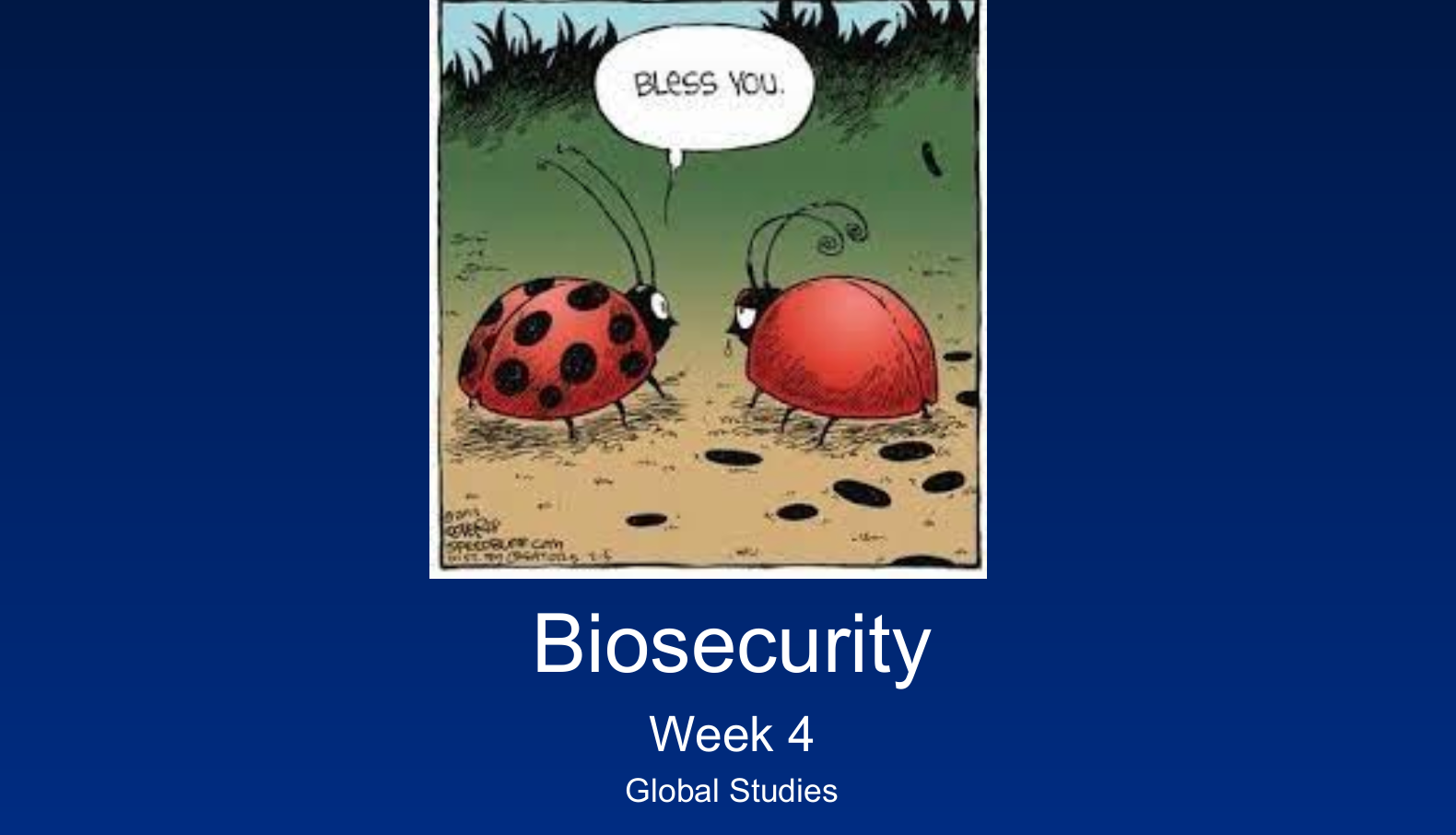
FOCUS / ARONGA learning intentions:
- We are FOCUSING on describing threats to our natural environment
- We are FOCUSING on strategies to respond to New Zealand threats
- We are FOCUSING Identifying and defining how New Zealand can be safe from the pandemic covid 19
-
One of the most serious threats that any country can face from overseas, is from viruses and bacteria which can spread disease.
An epidemic similar to today’s Covid-19 outbreak happened across the world in 1918.
FOCUS / ARONGA learning intentions:
- We are FOCUSING on describing threats to our natural environment
- We are FOCUSING on strategies to respond to New Zealand threats
- We are FOCUSING Identifying and defining how New Zealand can be safe from the pandemic covid 19
-
PLAN & DO / WHAKAMAHI learning intentions:
- We are PLANNING to prepare a report so that we can promote how important is biosecurity in New Zealand.
- We are PLANNING TO demonstrated effectively the practicality of how to use this information within New Zealand airports
NEW ZEALAND UNDER ATTACK by Bugs!
Imagine that you are an advisor to New Zealand Prime Minister Jacinda Ardern. She calls you into her office and says that she recently was in her garden and found several different types of non-native bugs munching away at her vegetables. She is worried about the threat posed to the country’s economy from the destruction of plants by foreign insects that have made New Zealand their home. She wants you to write a report for her on how bad the situation is and what can be done about it. Your report will contain the following:
A cover page should have your name, assessment name, class, teacher, date issued, and due date. Also, include a catchy title that will get her attention and an image that relates to the topic. The image can be drawn or cut and pasted.
-
PLAN & DO / WHAKAMAHI learning intentions:
- We are PLANNING to prepare a report so that we can promote how important is biosecurity in New Zealand.
- We are PLANNING TO demonstrated effectively the practicality of how to use this information within New Zealand airports
Criteria
WORKING TOWARDS Curriculum expectations
Working AT curriculum expectations
Working ABOVE curriculum expectations
Working BEYOND curriculum expectations
Identify
Problems
You have identified a bioseurity problem facing New Zealand’s environment
You have identified a range of biosecurity problems facing New Zealand’s environment
You have described in detail a biosecurity problem facing New Zealand’s environment
You have a detailed description of a biosecurity problem facing New Zealand’s environment
Explanation
You have yet to identify a reason why biosecurity is important and/or how it can make a difference to New Zealand’s environment
You have identified a reason why biosecurity is important and how it can make a difference to New Zealand’s environment
You have identified a range of reasons why biosecurity is important and how it can make a difference to New Zealand’s environment
You have described in detail reasons why biosecurity is important and how it can make a difference to New Zealand’s environment
Impact
You have identified a consequence of a biosecurity problem in New Zealand’s environment
You have identified a range of consequences of biosecurity problems in New Zealand’s environment
You have described in detail the consequences of a biosecurity problem in New Zealand’s environment
You have a detailed description with examples of the consequences of a problem in New Zealand’s environment
Effectiveness
You have yet to demonstrate the practicality of how to use this information within New Zealand airports
You have demonstrated some practicality of how to use this information within New Zealand airports
You have demonstrated the practicality of how to use this information within New Zealand airports
You have demonstrated effectively the practicality of how to use this information within New Zealand airports
Time Management
You have not submitted your assessment on time
You have not submitted your assessment on time
You submitted your assessment on time
You have submitted your assignment by the due date...
Overall
WORKING TOWARDS Curriculum expectations
Working AT curriculum expectations
Working ABOVE curriculum expectations
Working BEYOND curriculum expectations
-
PLAN & DO / WHAKAMAHI learning intentions:
- We are PLANNING to prepare a report so that we can promote how important is biosecurity in New Zealand.
- We are PLANNING TO demonstrated effectively the practicality of how to use this information within New Zealand airports
Criteria
WORKING TOWARDS Curriculum expectations
Working AT curriculum expectations
Working ABOVE curriculum expectations
Working BEYOND curriculum expectations
Identify
Problems
You have identified a bioseurity problem facing New Zealand’s environment
You have identified a range of biosecurity problems facing New Zealand’s environment
You have described in detail a biosecurity problem facing New Zealand’s environment
You have a detailed description of a biosecurity problem facing New Zealand’s environment
Explanation
You have yet to identify a reason why biosecurity is important and/or how it can make a difference to New Zealand’s environment
You have identified a reason why biosecurity is important and how it can make a difference to New Zealand’s environment
You have identified a range of reasons why biosecurity is important and how it can make a difference to New Zealand’s environment
You have described in detail reasons why biosecurity is important and how it can make a difference to New Zealand’s environment
Impact
You have identified a consequence of a biosecurity problem in New Zealand’s environment
You have identified a range of consequences of biosecurity problems in New Zealand’s environment
You have described in detail the consequences of a biosecurity problem in New Zealand’s environment
You have a detailed description with examples of the consequences of a problem in New Zealand’s environment
Effectiveness
You have yet to demonstrate the practicality of how to use this information within New Zealand airports
You have demonstrated some practicality of how to use this information within New Zealand airports
You have demonstrated the practicality of how to use this information within New Zealand airports
You have demonstrated effectively the practicality of how to use this information within New Zealand airports
Time Management
You have not submitted your assessment on time
You have not submitted your assessment on time
You submitted your assessment on time
You have submitted your assignment by the due date...
Overall
WORKING TOWARDS Curriculum expectations
Working AT curriculum expectations
Working ABOVE curriculum expectations
Working BEYOND curriculum expectations
-
Preparation for our trip to Tiritiri Island on Thursday, July 29, 2021, including practice for the Karakia
Remember on Thursday you need to be at the school by 7:10 am as we are leaving at 7:20 am to catch the ferry to the island. We will be returning to the school at about 6 pm.
EXPLORE / TŪHURA learning intentions:
- We are EXPLORING the broad topic of food and culture as an introduction.
- We are EXPLORING the relationship between food, culture, and diet, and the national dishes that reflect the cultural heritage of students in class.
- We are EXPLORING the history behind the cacao bean and how the Spanish Empire controlled the production of cacao beans (and hence, chocolate) around the world. We will also explore unhealthy aspects of sports drinks.
- We are EXPLORING traditional Maori foods and traditions that are associated with them such as the best times to eat and to fast according to Maori tradition.
-
Food, Culture, and Diet –
A Global Perspective
“Food for us comes from our relatives, whether they have wings or fins or roots. That is how we consider food. Food has a culture. It has a history. It has a story. It has relationships.”
– Winona Laduke
Why study food and culture?
What can we learn about our culture and one another through the foods we eat?
Food cultures also represent the wisdom gained and shared through thousands of years of experimentation and observation. For example, the grains and beans found in many food traditions have been determined to provide the perfect combination of amino acids our bodies need. Although it may seem that kids today only eat pizza or hamburgers, your students are likely to represent a tremendous diversity of food traditions. Be sure to set the stage for an open andFood is much more than a tool for survival; it is also a source of pleasure, comfort, and security. And, while it nourishes our bodies, it can also nourish our families and our communities. Food is one of the most important and persistent aspects of tradition and culture. Throughout the world, food is used to celebrate holidays, rituals, and family gatherings. For special occasions—and even for daily meals—our culture often determines what, when, and how we eat. These traditions connect us to our history, our locale, and to one another accepting classroom environment so that students will feel comfortable talking about their family food traditions.
(Source: https://www.nourishlife.org/teach/curriculum/activity-3-food-traditions/).
Success Criteria
Students will become familiar with the relationship between food and their own cultural, religious, or national backgrounds.
Activities:
1. Reading
2. Research
3. Presentation Skills
EXPLORE / TŪHURA learning intentions:
- We are EXPLORING the broad topic of food and culture as an introduction.
- We are EXPLORING the relationship between food, culture, and diet, and the national dishes that reflect the cultural heritage of students in class.
- We are EXPLORING the history behind the cacao bean and how the Spanish Empire controlled the production of cacao beans (and hence, chocolate) around the world. We will also explore unhealthy aspects of sports drinks.
- We are EXPLORING traditional Maori foods and traditions that are associated with them such as the best times to eat and to fast according to Maori tradition.
-
This week we will use How the Spanish Spread Chocolate Around the World as an example of how culture can be spread around the world through food.

Success Criteria
1. Gain a thorough understanding of the history behind the cacao bean and how chocolate has changed over the years.
2. Learn how the Spanish Empire controlled the production of cacao beans around the world.
Resource: History of Chocolate Powerpoint
Activities:1. Powerpoint on the History of Chocolate (named ‘History of Chocolate PPT’).
Task 1: Watch the video first, then write down the key information from the slides into your books.
Task 2: Quiz multichoice
2. Article Reading & Questions answer
Kids and Sports Drinks.’ https://foodandhealth.com/news-kids-and-sports-drinks/EXPLORE / TŪHURA learning intentions:
- We are EXPLORING the broad topic of food and culture as an introduction.
- We are EXPLORING the relationship between food, culture, and diet, and the national dishes that reflect the cultural heritage of students in class.
- We are EXPLORING the history behind the cacao bean and how the Spanish Empire controlled the production of cacao beans (and hence, chocolate) around the world. We will also explore unhealthy aspects of sports drinks.
- We are EXPLORING traditional Maori foods and traditions that are associated with them such as the best times to eat and to fast according to Maori tradition.
-
This week we will be exploring:
How a Maori Man Changed his Life by Changing his Relationship with Food
Kai Maori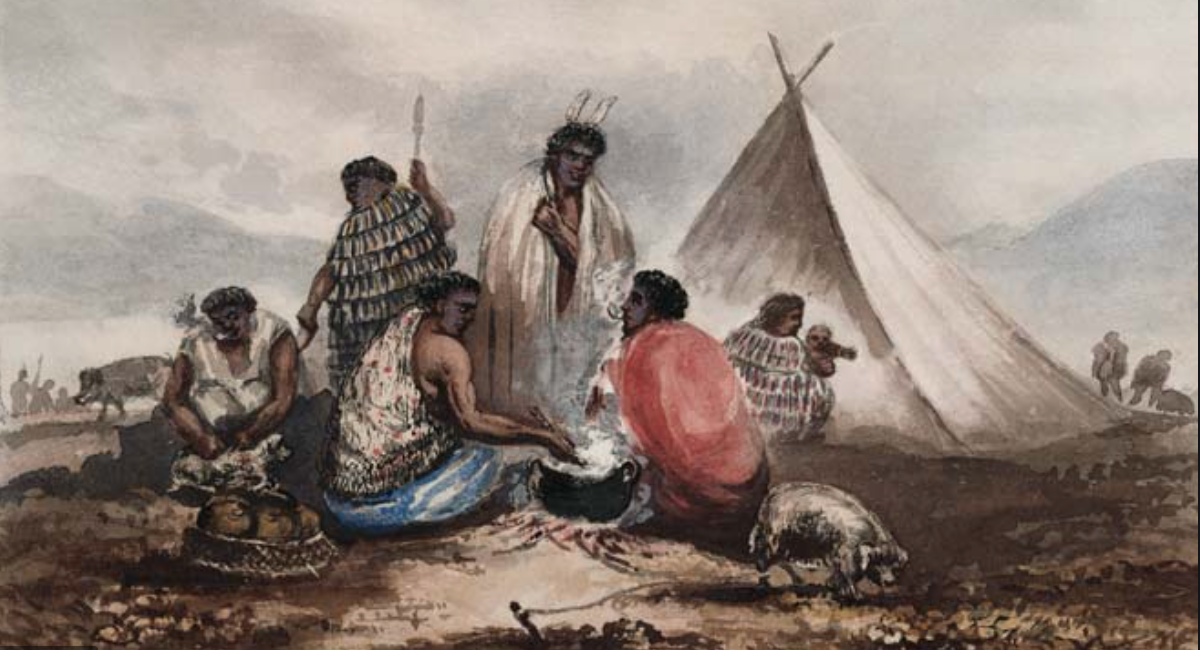
Success Criteria:
1. Understand traditional Maori foods
2. Describe how Maori view food
3. Recall the best times to eat and to fast according to Maori tradition.
Activities:
1. Watch the video – ‘TUPUNA KAI: A Māori diet based on what ancestors ate.’ (Google Classroom)
2. Answer the questions (Google Classroom)EXPLORE / TŪHURA learning intentions:
- We are EXPLORING the broad topic of food and culture as an introduction.
- We are EXPLORING the relationship between food, culture, and diet, and the national dishes that reflect the cultural heritage of students in class.
- We are EXPLORING the history behind the cacao bean and how the Spanish Empire controlled the production of cacao beans (and hence, chocolate) around the world. We will also explore unhealthy aspects of sports drinks.
- We are EXPLORING traditional Maori foods and traditions that are associated with them such as the best times to eat and to fast according to Maori tradition.
-
Week 5: The Hangi and Maori Food Tourism
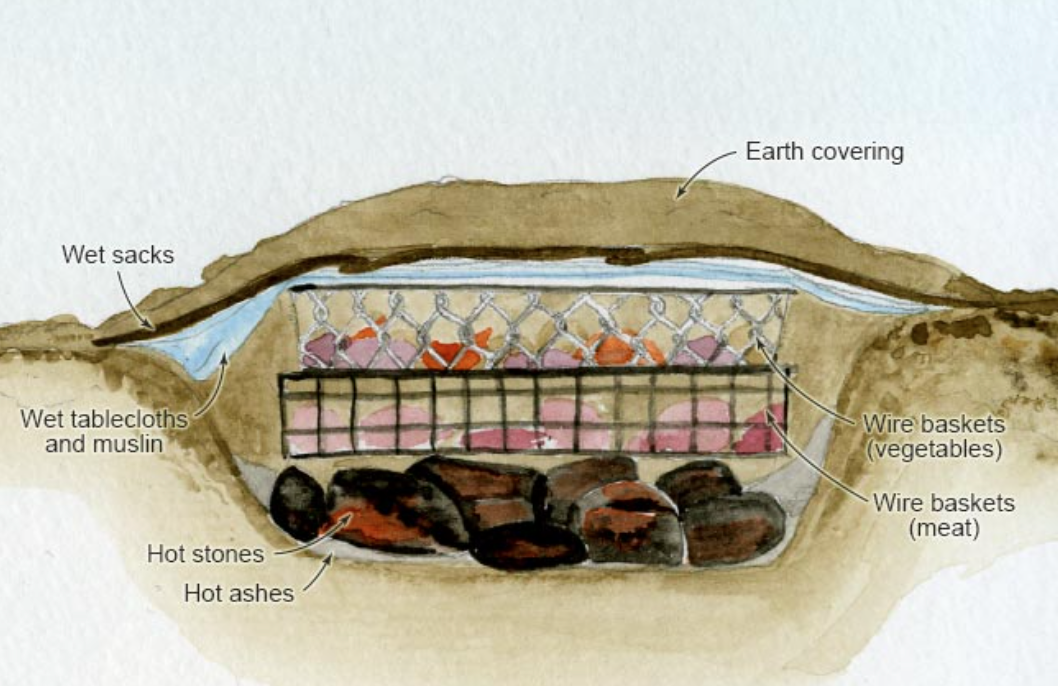
Success Criteria
Describe traditional foods that were eaten by Maori long ago.
Understand the Maori Hangi – a Maori method of cooking food using heated rocks buried in an oven pit.
Explain how elders are attempting to keep the ancient traditions alive by foraging for traditional foods so the knowledge does not become lost.
Activities:
1. Food and Culture in New Zealand and do the activities in Google Classroom questions:
2. Watch the video on Maori Food Tourism. Google Classroomhttps://www.youtube.com/watch?v=B8sKQeLmax0 (12:07 sec.)
3: The Hangi and Maori Food Tourism. Google ClassroomFOCUS / ARONGA learning intentions:
- We are FOCUSING on what it is like to participate in a Maori Hangi and on understanding the general relation between foods and their cultural trappings.
- We are FOCUSING on the role of junk food in Western culture and in specifically – New Zealand, the composition of junk food and its consequences.
-
Distance Learning during this lockdown.
All the activities will be found in this doc: https://docs.google.com/document/d/1GVPWeDvsXluTfONK9KaIgLZwN3OZILHQkuGSjoo-4IE/edit
And the instructions in Google Classroom!
FOCUS / ARONGA learning intentions:
- We are FOCUSING on what it is like to participate in a Maori Hangi and on understanding the general relation between foods and their cultural trappings.
- We are FOCUSING on the role of junk food in Western culture and in specifically – New Zealand, the composition of junk food and its consequences.
- We are FOCUSING to understand the problem of junk food in New Zealand and be familiar with key facts and figures that highlight the problem.
- We are FOCUSING to describe the impact of eating junk food impact on our health.
- We are FOCUSING to describe how certain companies target people with ads designed to get you to eat food that is not good for you
-
During this week you will be working with your partner or alone on your Junk Food project.
Success Criteria: I can/have...
- Write here
Activities:
See Google Classroom, you will create a Powerpoint on the problem of junk food in New Zealand. Your project will be based on the following article: https://www.newshub.co.nz/home/health/2017/03/special-report-is-new-zealand-s-addiction-to-fast-food-killing-us.html “Is New Zealand's addiction to fast food killing us?” by Tony Wright (NewsHub).
Homework:
PLAN & DO / WHAKAMAHI learning intentions:
- We are PLANNING to create a PowerPoint highlighting the problem of junk food in New Zealand and the consequences
-
During our meeting on Monday and Wednesday, you will be presenting your projects.
PLAN & DO / WHAKAMAHI learning intentions:
- We are PLANNING to create a PowerPoint highlighting the problem of junk food in New Zealand and the consequences
-
A Short History of Fads & Crazes –
The Power of Peer Pressure & the Quest for the Next Big Thing
The Popp-it Fidget fad is all the rage in New Zealand
Welcome back to a new term!
We will begin our first lesson with a look at fads. What is a fad?
Activities:
Refer to Google classroom-Week 2-Term 4 Activity
EXPLORE / TŪHURA learning intentions:
- We are EXPLORING what a fad is
- We are EXPLORING to conceptualize keywords regarding fads
- We are EXPLORING reasons why fads are so popular
- We are EXPLORING to categorize the stages of a fad
-
Why kids can’t stop pressing Poppits:
The Psychology behind the new toy fad
Popits continue to be all the rage among middle school students in New Zealand.
Watch the video clip on why some scientists think they may actually have a benefit for some children.
Activities:Refer to Google Classroom-Week 3-Term 4
-
This week we will start a fun project about fads!

Success Criteria: I can/have...
- I have become familiar with 3 different fads, how they started, grew, and declined.
- I have researched enough information to sufficiently answer all of the sections of my project
Activities:
- Finish the Week 2 and Week 3 Fads activities in Google Classroom
- Fads project-Google Classroom
.
EXPLORE / TŪHURA learning intentions:
- We are EXPLORING what a fad is
- We are EXPLORING to conceptualize keywords regarding fads
- We are EXPLORING reasons why fads are so popular
- We are EXPLORING to categorize the stages of a fad
- I have become familiar with 3 different fads, how they started, grew, and declined.
-
For this week we will continue to work on your research on your chosen FADS.
Success Criteria: I can/have...
- I have become familiar with 3 different fads, how they started, grew, and declined.
- I have researched enough information to sufficiently answer all of the sections of my project
Activities:
- Fads project-Google Classroom
FOCUS / ARONGA learning intentions:
- We are FOCUSING or researching 3 fads
- We are FOCUSING analyse the different categories of fad
- I have become familiar with 3 different fads, how they started, grew, and declined.
-
This week you will be presenting your Fads research to the class on Gmeets.
The presentation will happen on Wednesday 24th at 11:00 am
After this, we will be doing something really fun! An infomercial to put into practice your knowledge acquired in your Fads.
Success Criteria
Students will deepen their knowledge and understanding of a particular fad, the functions they served, and why they were attractive, by creating an infomercial.
Activities
Creating an infomercial-Google classroomFOCUS / ARONGA learning intentions:
- We are FOCUSING or researching 3 fads
- We are FOCUSING analyse the different categories of fad
PLAN & DO / WHAKAMAHI learning intentions:
- We are PLANNING to present our research so that we can demonstrate our understanding on fads
- We are PLANNING to create an infomercial so that we can promote our fad chosen
-
PLAN & DO / WHAKAMAHI learning intentions:
- We are PLANNING to present our research so that we can demonstrate our understanding on fads
- We are PLANNING to create an infomercial so that we can promote our fad chosen
-
PLAN & DO / WHAKAMAHI learning intentions:
- We are PLANNING to present our research so that we can demonstrate our understanding on fads
- We are PLANNING to create an infomercial so that we can promote our fad chosen
